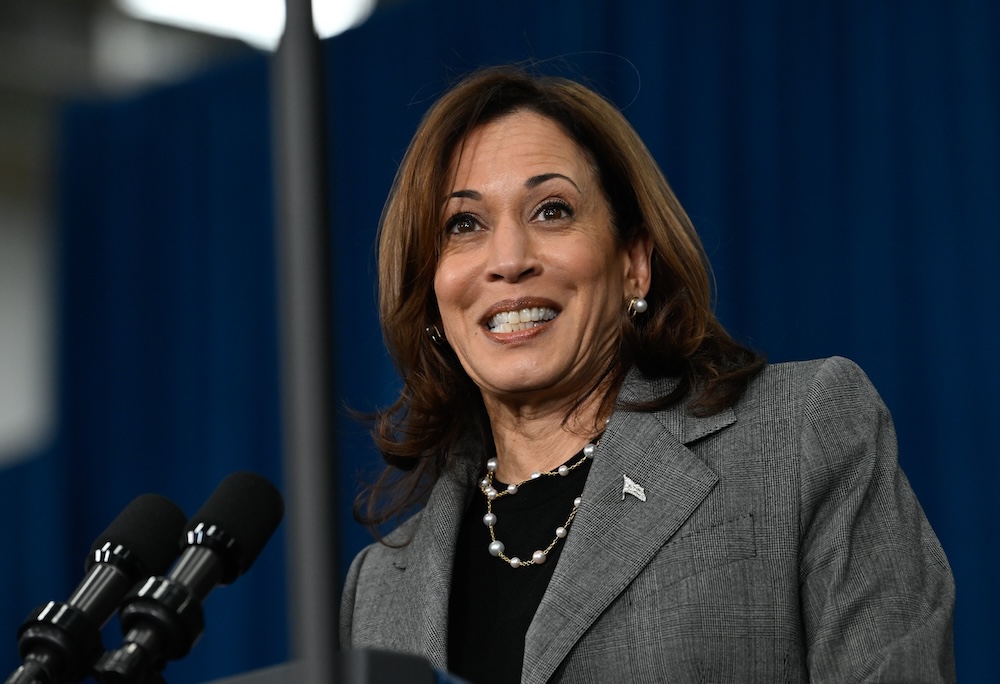Politics
NEW: Democrats Drop To Third Place In Key State’s Early Vote, Falling Behind ‘Others’

With just days left before Election Day, early voting numbers in North Carolina are shaking up expectations. According to the latest data, Democrats have fallen to third place in total turnout, behind Republicans and, more surprisingly, the “Others” category. This could prove critical as Vice President Kamala Harris and former President Donald Trump make last-minute stops in the state, which remains a key battleground in the 2024 race.
As of this morning, North Carolina’s early vote count stands at 3.37 million—about 62% of the anticipated electorate. The breakdown reveals:
- Republicans: 1,148,634 votes
- Others: 1,113,426 votes
- Democrats: 1,106,358 votes
While “Others,” which includes independents and third-party voters, had a strong showing on Monday, Republicans still hold the top spot. Democrats, however, are struggling to keep pace as early voting enters its final stretch.
The report, shared by DecisionDesk HQ analyst Michael Pruser on X, indicates that the gap between Democrats and the leading parties may be tough to close. With only four days of early voting left, it’s becoming less likely that Democrats will regain second place, let alone the lead.
North Carolina added 266,000 votes in this morning’s report, bringing their total vote to 3.37 million. This represents roughly 62% of the expected electorate.
🔴Republicans – 1,148,634
🟡Others – 1,113,426
🔵Democrats – 1,106,358In the spirit of Halloween, “The Others” led… pic.twitter.com/TTk66eCeDi
— Michael Pruser (@MichaelPruser) October 30, 2024
Despite lagging turnout, Democrats have managed to maintain strong support in Chatham County, where the party has surpassed 60% turnout, a rare achievement statewide. Currently, the county’s Democrats boast a 63.73% turnout rate. While total early voting numbers may fall short of the record 4.63 million seen in 2020, projections suggest that North Carolina could reach around 4.2 million early votes.
North Carolina carries 16 electoral votes, making it one of the largest prizes among swing states. In tight races, this can be a tipping point for either candidate. The state has a history of fluctuating between Republican and Democratic candidates. While it narrowly supported Donald Trump in both 2016 and 2020, Barack Obama won it in 2008. This unpredictable voting pattern keeps it in play every cycle.
North Carolina’s early voting trends often provide a snapshot of national voter sentiment. Strong early turnout, particularly among independents and new voters, can signal broader trends and momentum for either party. The state’s electorate is diverse, with significant urban, suburban, and rural populations, as well as a substantial African American community. Presidential results in North Carolina often influence down-ballot races, including Senate, House, and gubernatorial contests as well.
On Tuesday, a top adviser for Trump’s campaign alleged that Harris withdrew from the North Carolina race following reports that her campaign canceled approximately $1.7 million in television advertising in the state. Chris LaCivita highlighted the change in media buys, which showed that Harris’s campaign pulled back $1,721,302 in previously planned ad expenditures in North Carolina.
@KamalaHarris giving up on North Carolina..pulling money out. Maybe to drop in Virginia to try and stop the slide ? pic.twitter.com/oTcCAuTJYx
— Chris LaCivita (@LaCivitaC) October 29, 2024
According to reports from Media Buying and Analytics, Harris’ revised ad flight for October 29 to November 5 includes pulling advertising from the Charlotte, Raleigh, Greensboro, Greenville, Greenville-New Bern, Norfolk, and Wilmington markets. Among the hardest-hit markets is Charlotte, with $878,545 removed, followed by Raleigh at $558,076.
(VOTE: Should ’60 Minutes’ Be Investigated For Deceptively Editing Kamala Interview?)

